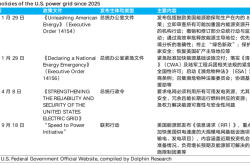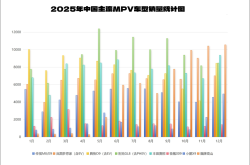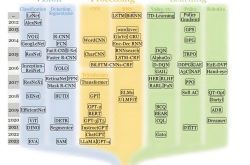Who Will Save the Dealers?
![]() 07/22 2024
07/22 2024
![]() 616
616
Commenting on the auto stock market of the week, observing the various trends in the automotive industry.
In recent days, the newbies playing auto stocks in stock forums haven't been in a good mood.
Exactly how unhappy they are, the Q&A is as follows.
Someone asked, "What do you think about the collective plunge in new energy vehicle stocks? Is it related to the external environment?" Someone answered, "Buy high, sell low. Unless I bet big and reduce costs, I might recover my losses. Otherwise, more down than up, slowly ground away."
Of course, there are other arguments, each different. However, the basic tone points in one direction: the future of the auto industry is too competitive, and many automakers will be eliminated, either this year or next.
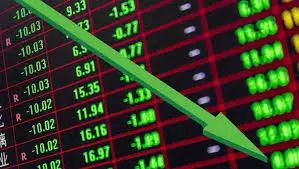
In fact, upon closer inspection, it can be found that at the beginning of 2023, auto stocks were also differentiated. Most auto stocks did not rise in 2023, and among passenger vehicle companies, only a few such as Seres, JAC Motor, and Changan Automobile achieved gains. Component companies, like Top Group, only rose to 2022 levels.
It is competition that has changed everything.
Indeed, previously, riding the wave of the times, new energy emerged as the hottest sector in A-shares over the past few years, giving birth to many major stocks. In addition to new energy vehicles and photovoltaics, two core branches of new energy, the wind power sector also produced many top stocks.
For example, Mingyang Smart Energy, a wind power company, was listed at less than 5 yuan in 2019. After catching up with the new energy bull market in 2021, it rose above 35 yuan that year, with its share price tripling in less than three years.
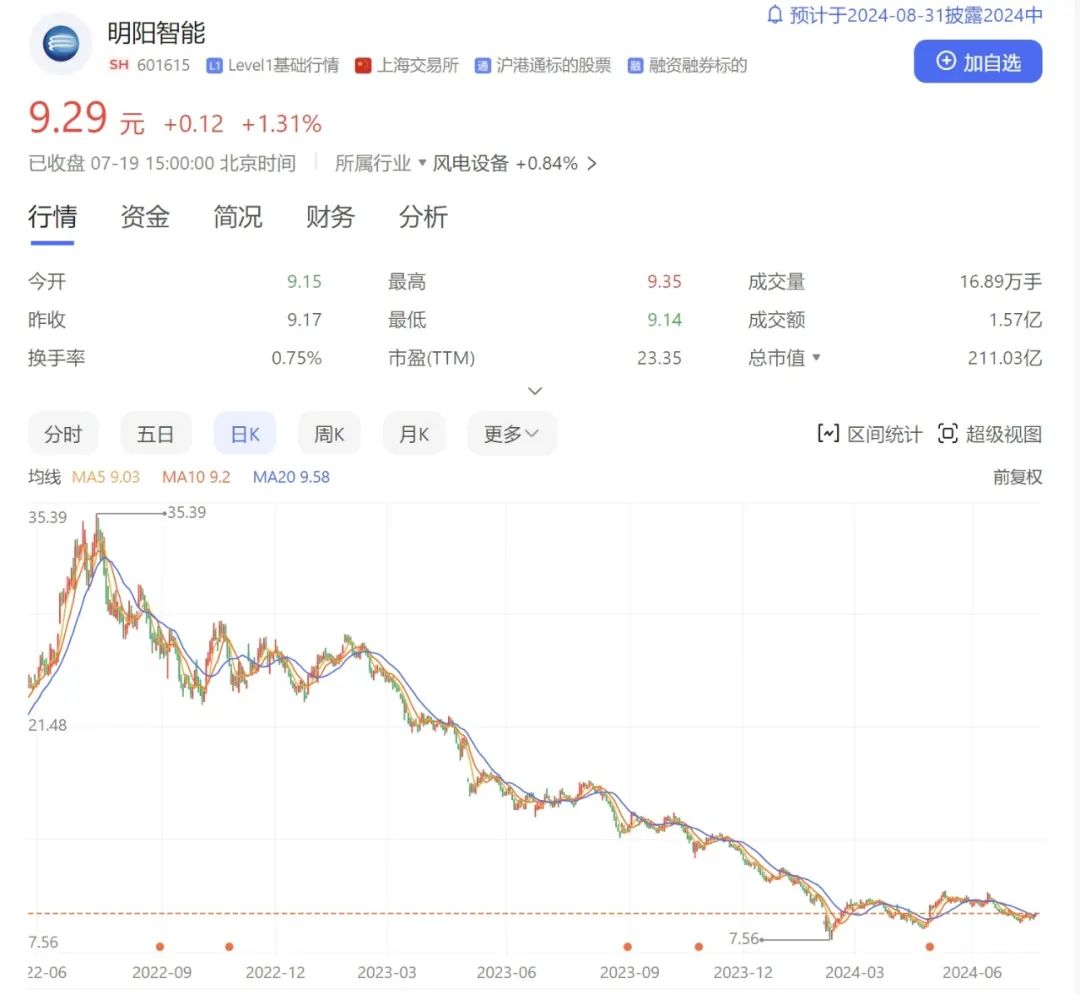
However, in an increasingly competitive environment, profits have continued to decline, with performance plummeting by nearly 80%. This sharp decline in performance is directly reflected in the capital market, with Mingyang Smart Energy's share price falling by about 50% in 2023 and another 25% in the first half of 2024.
This is just the tip of the iceberg. The situation is not limited to just one company but affects virtually all aspects of the automotive industry.
In the first half of this year, the number of stocks falling expanded to 73% from a rise. Apart from Xiaomi Group, all new-energy vehicle makers suffered defeats, and the dealer sector turned green across the board.
Capital market data shows that the overall average share price of auto stocks fell by 8.23% in the first half of this year, with a total market value of 5.91 trillion yuan. In the first half of 2023, the situation was quite different, with auto stocks rising by 4.36% and a total market value of 6.4 trillion yuan despite having three fewer stocks.
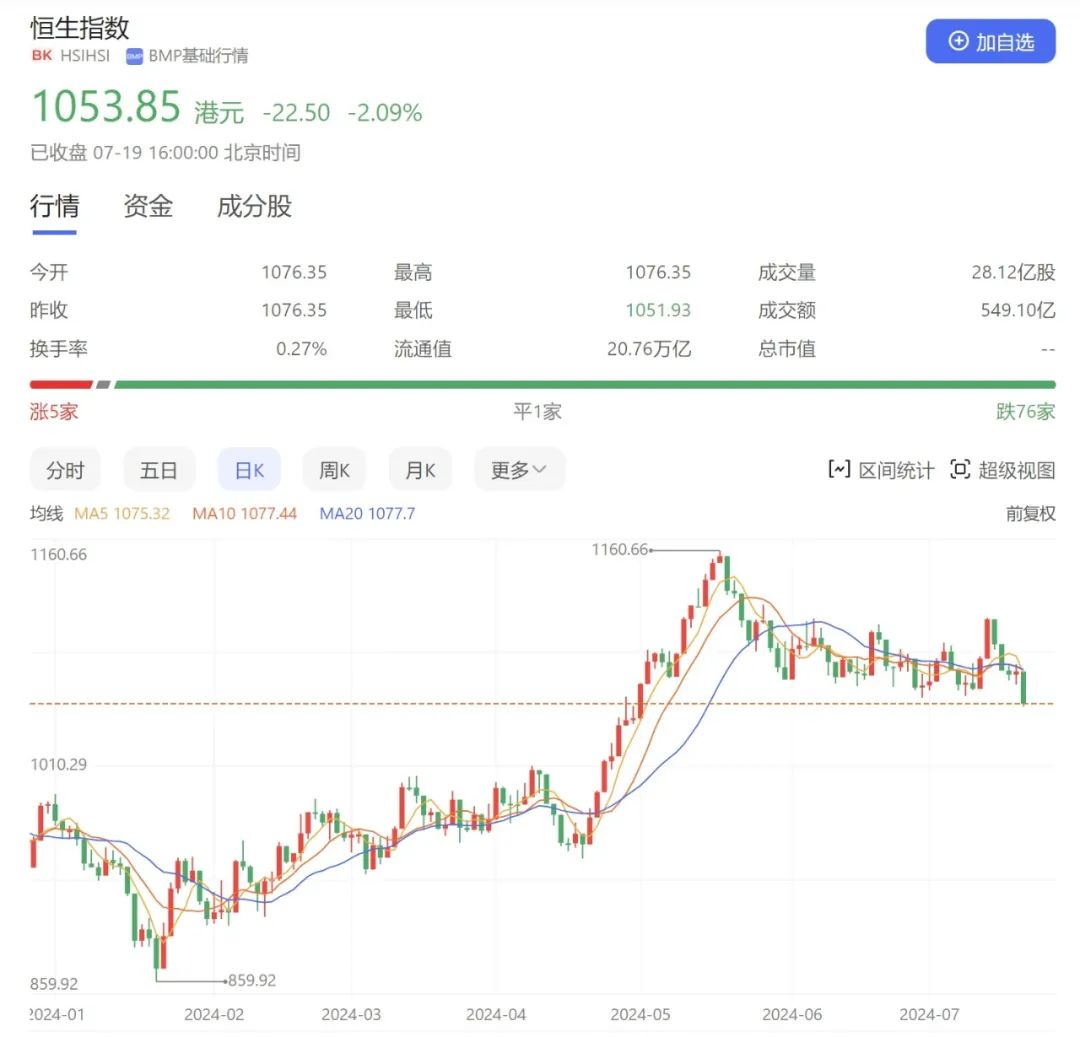
Looking at another data point, among the three major stock indices in the first half of this year, only the Hang Seng Index achieved a reversal, rising from a 4.37% decline in the same period last year to a 3.94% gain.
However, since Hong Kong-listed companies account for only about 30% of auto stocks, and most of them are declining new-energy vehicle makers and dealers, the recovery of the Hang Seng Index has failed to reverse the overall decline in auto stocks.
In summary, in the first half of 2024, none of the 73 Chinese auto industry listed companies and 84 auto stocks surpassed the trillion-yuan market value threshold.
The situation has not improved in the second half.
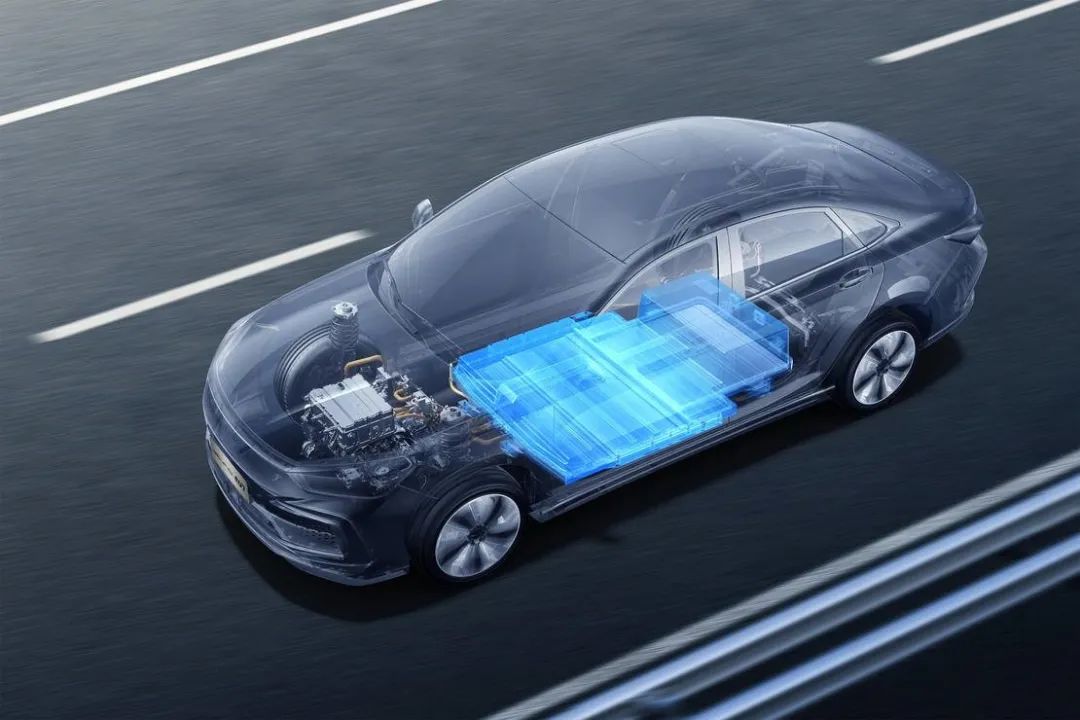
According to statistics, the China Securities New Energy Automobile Index fell by 7.81% in the past month, 10.66% in the past three months, and 18.13% year-to-date. The index selects listed companies involved in businesses such as lithium batteries, charging piles, and new energy vehicles as index samples to reflect the overall performance of related listed companies.
On July 17, the three major A-share indices closed with mixed results, with the China Securities New Energy Automobile Index falling 0.4% to 2371.29 points, with a turnover of 16.783 billion yuan.
The passenger vehicle sector performed poorly, and the dealer sector was "more green than red," with the downward trend not abating. Recently, another group's stock has prompted many investors to say, "Who can save me?"
That is Guanghui Auto Group, which once dominated the fuel vehicle era. Recent stock market-related topics involving Guanghui Auto Group are essentially written like this: "Guanghui Auto's shares and convertible bonds suffer a 'double whammy,' with the convertible bond's face value reduced to only 45.767 yuan, yet it still has obligations to repay principal and interest."
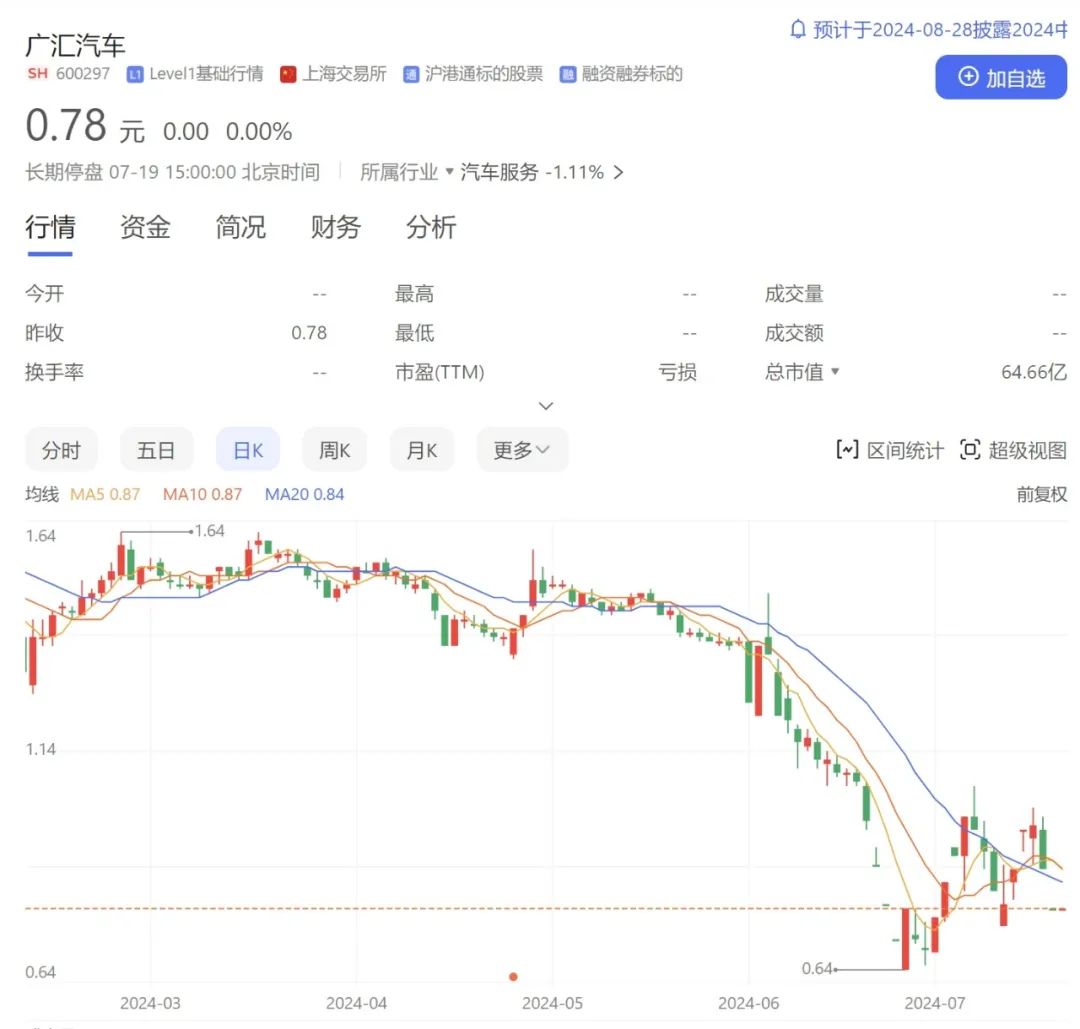
As of the close on July 17, Guanghui Auto was trading at 0.78 yuan per share, down 10.34%, with a market value of only 6.466 billion yuan, nearly 100 billion yuan less than its peak. This marks the 20th consecutive trading day that Guanghui Auto's share price has been below 1 yuan per share.
According to Article 9.2.1, Paragraph 1, Item 1 of the "Shanghai Stock Exchange Listing Rules," the company's shares have triggered delisting conditions. The company's shares may be delisted from the Shanghai Stock Exchange. Trading was suspended from the opening on July 18, and the company's shares are at risk of delisting.
"Unfortunately, Guanghui Auto has locked in a face-value delisting from A-shares. Due to previous high stock dividends, the share capital reached 8.3 billion shares, and the policy does not allow share consolidation. Recently, low-priced stocks have fallen significantly, with a siphon effect becoming more pronounced as they approach 1 yuan, accelerating the decline in share prices. Unfortunately, the face-value delisting has already been locked in," said an insider from Guanghui.
In 2024, face-value delisting has become the main reason for the delisting of A-share companies. As of July 17, 24 companies have completed delisting this year, and another 22 companies are locked in for delisting. Among these 46 companies, 33 are delisted or about to be delisted due to touching the face-value delisting threshold, accounting for 71.74%.
In fact, the seeds of Guanghui Group's delisting crisis were sown long ago. After Guanghui Auto was listed through a backdoor in 2015, it aggressively expanded its share capital on one hand and was keen on "high stock dividends" on the other, continuously expanding its share capital.
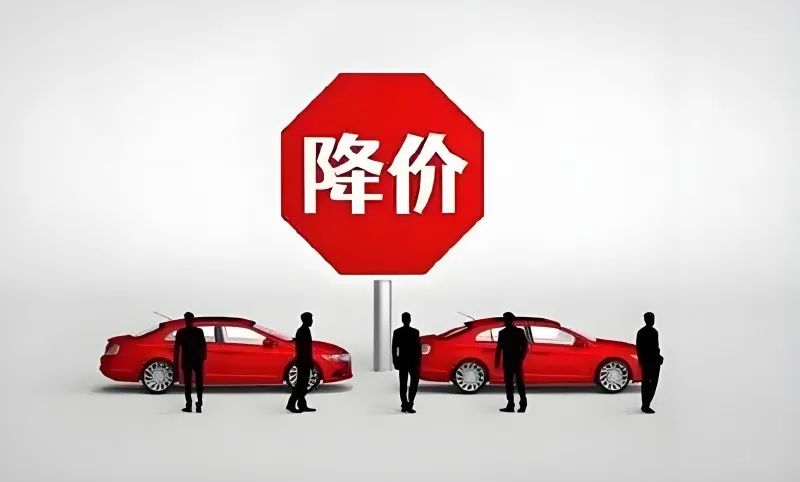
The delisting crisis did not come out of nowhere. What pushed Guanghui Auto Group to the brink of delisting was its deteriorating performance. Amid the auto price war that began in March 2023, Guanghui Auto, as a dealer at the end of the automotive supply chain, has seen its profits continue to tighten, with significant pre-losses in the first half of this year.
Guanghui Auto Group is not an isolated case. As the Guanghui incident escalates, the survival difficulties of traditional auto dealers are once again brought to the forefront. Once upon a time, many dealer groups made money almost effortlessly, but with industry adjustments and the rise of direct sales, their business has seen a significant decline.
At the beginning of the year, Guangdong's veteran auto dealer Yongao closed more than 80 of its 4S stores overnight, and not long ago, Zhengzhou's largest auto dealer applied to withdraw from the network for eight 4S stores of the same joint venture brand... The reasons are similar to those of Guanghui Auto Group.
What is the root cause?
As competition in the industry intensifies, automakers are engaging in price wars to grab market share, leading to a significant decline in the sales volume and gross margin of new cars for dealer groups.

At the same time, dealers have taken decisive measures to "shut down, stop, merge, and transfer" underperforming weak brands, continuously losing and inefficient stores, resulting in one-time losses and expenses such as impairment and accelerated amortization of related assets such as receivables and franchise rights.
A car dealer with revenue of over 100 billion yuan is step by step towards the brink of delisting, reflecting the enormous pressure borne by dealers under price wars. The continued price cuts have had an increasingly strong chain reaction, not only reducing dealers' profits but also making many car buyers wait and see, leading to a situation where the more prices fall, the harder it is to sell.
In this competitive environment, most participants in the auto industry are already bruised and battered, but dealers are hit more directly. Therefore, dealers selling cars at a loss, capital chain ruptures, and even a wave of closures are no longer new.
"Who will save the dealers?" A question asked for years still has no answer.
Note: Some images are sourced from the internet. If there is any infringement, please contact us for removal.


